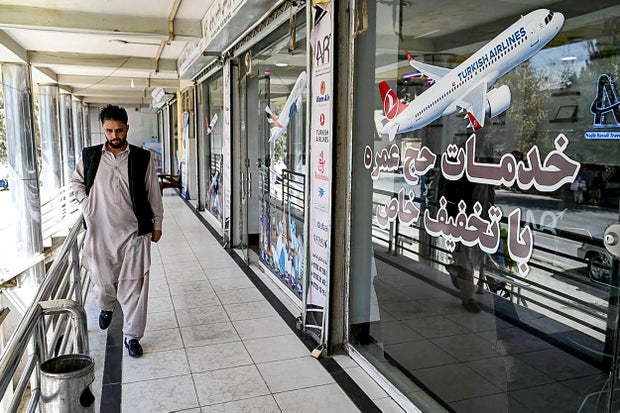Internet services in Afghanistan came back online Wednesday, restoring vital communication and web connectivity for residents two days after the Taliban government blocked web access nationally without any explanation.
CBS News verified that internet services were restored on Wednesday by engaging directly with a dozen individuals across the country.
The Taliban has yet to provide any official explanation for the internet shutdown that lasted over 48 hours, nearly paralyzing the country as digital communications were disabled, flights halted as air traffic control systems went offline and banking services were left inaccessible.
WAKIL KOHSAR/AFP/Getty
The shutdown came weeks after the Taliban government started shutting down high-speed internet access in some provinces, saying it was taking the measure “to prevent immoral activities” on the orders of the group’s supreme leader Hibatullah Akhundzada.
Sources inside Afghanistan, using Starlink satellite connections to access web-based communications, told CBS News on Tuesday that there were rumors the Taliban would restore at least basic, 2G data service to mobile users, but the more robust restoration of at least 4G networks seen on Wednesday came as a surprise.
CBS News was unable to reach Taliban officials in Kabul on Wednesday to comment on the shutdown, or the restoration of internet services.
The United Nations Assistance Mission in Afghanistan said Tuesday that the outage risked harming the Afghan people, threatening economic stability and exacerbating the ongoing humanitarian crisis in the country. It called on the Taliban to immediately restore the internet.
The U.S. and most other Western nations have refused to recognize the Taliban as Afghanistan’s legitimate government since the group took back control of the country in 2021, following the chaotic U.S. military withdrawal.
Since then, the Taliban has dramatically rolled back the rights of women and girls, detained journalists, and cracked down on public dissent.
Afghanistan faces one of the world’s worst humanitarian crises, according to Human Rights Watch, exacerbated by donor governments’ aid cuts and the return of 1.9 million refugees expelled from Iran and Pakistan. Afghanistan is also still recovering from a devastating earthquake that killed nearly 3,000 people earlier this month.
contributed to this report.


